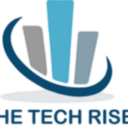Blockchain technology:
Blockchain technology has gained significant attention recently for its potential to revolutionize various industries. Originally developed as the underlying technology behind cryptocurrencies like Bitcoin, blockchain has evolved into a versatile tool with applications across multiple sectors. Blockchain technology offers enhanced security, transparency, and efficiency by providing a decentralized and immutable ledger system. In this article, we will delve into the impact of blockchain on various industries, highlighting its transformative potential and real-world use cases.
Financial Services Industry:

The financial services industry has been one of the early adopters of blockchain technology. Blockchain-based systems enable faster and more secure transactions, eliminating intermediaries and reducing costs. Smart contracts on blockchain networks automate complex financial processes, such as clearing and settlement, leading to greater efficiency and accuracy. Additionally, blockchain enhances transparency by providing a permanent and auditable record of transactions, reducing fraud and improving regulatory compliance. Financial institutions are also exploring using blockchain for identity verification, anti-money laundering (AML) efforts, and cross-border payments, as it enables faster settlement and reduces reliance on traditional correspondent banks.
Supply Chain and Logistics:
Blockchain technology can transform supply chain and logistics management by enhancing transparency, traceability, and efficiency. With blockchain, stakeholders can track the entire journey of goods, from the point of origin to the end consumer. By recording every transaction and movement on an immutable ledger, blockchain enables real-time visibility into inventory, reduces counterfeiting, and enhances product authentication. Smart contracts can automate critical processes, such as payment verification and customs documentation, streamlining operations and reducing administrative burdens. Blockchain also helps build trust among supply chain participants, as they can verify the authenticity and quality of goods. This technology has significant implications for industries like food and pharmaceuticals, where traceability and accountability are critical.
Healthcare:
Blockchain technology has the potential to revolutionize the healthcare industry by securely storing and sharing patient data. Blockchain offers a decentralized and tamper-proof ledger, allowing patients to control their health records while granting healthcare providers access to accurate and up-to-date information. This improves care coordination, reduces medical errors, and enhances patient privacy. Blockchain can also facilitate the secure sharing of research data, enabling collaboration and accelerating medical advancements. Additionally, it can streamline the supply chain for pharmaceuticals, preventing counterfeit drugs from entering the market. By implementing blockchain-based systems, healthcare organizations can improve data interoperability, enhance cybersecurity, and ensure data integrity, improving patient outcomes and operational efficiencies.
Real Estate:

Blockchain technology can disrupt the real estate industry by introducing greater transparency and efficiency to property transactions. Blockchain-based property registries can eliminate the need for intermediaries, such as title companies, by providing a decentralized and tamper-proof record of ownership. Smart contracts on blockchain networks enable the automated execution of property transactions, reducing paperwork and costs. Fractional ownership and tokenization of real estate assets are emerging trends, allowing for increased liquidity and accessibility for investors. Blockchain’s transparency and immutability instill trust among buyers and sellers, as property history and legal records can be easily verified. Additionally, blockchain can streamline the rental process, enabling secure and transparent lease agreements, automated rent payments, and efficient property management.
Conclusion:
Blockchain technology can transform various industries by introducing greater transparency, security, and efficiency. The financial services industry leverages blockchain for faster transactions, reduced costs, and enhanced regulatory compliance. In supply chain and logistics, blockchain enhances traceability, reduces counterfeiting, and streamlines operations—the healthcare sector benefits from improved patient data management, research collaboration, and secure supply chain management. Real estate experiences greater transparency, efficiency, and accessibility through blockchain.










